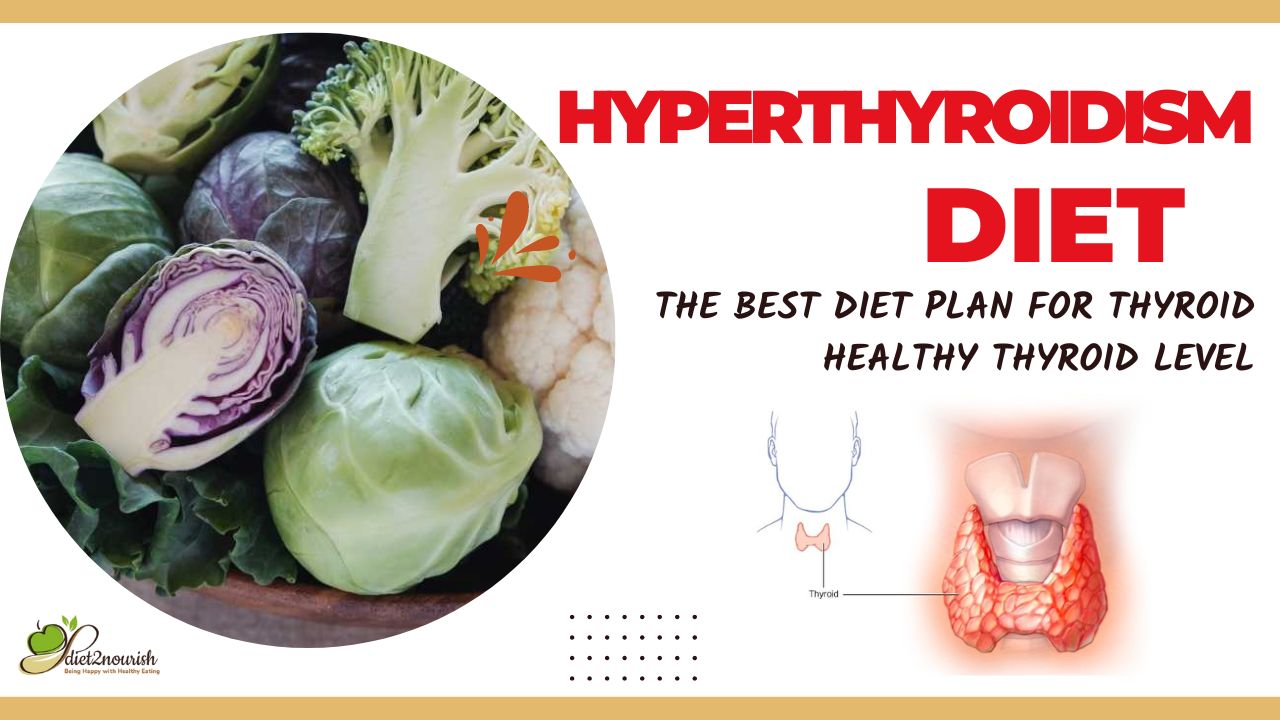Hyperthyroidism is a condition where the thyroid gland produces too much thyroid hormone. The thyroid hormone regulates metabolism, and an excess of it can lead to symptoms such as weight loss, rapid heartbeat, and anxiety. While medication is the primary treatment for hyperthyroidism, making dietary changes can also support thyroid health and reduce symptoms.
Here are some dietary recommendations for those with hyperthyroidism diet
- Eat a balanced diet – A balanced diet that includes a variety of whole foods can provide the necessary nutrients to support thyroid health. Include fruits, vegetables, whole grains, lean proteins, and healthy fats in your diet.
- Limit iodine intake – Iodine is necessary for the production of thyroid hormones, but too much iodine can exacerbate hyperthyroidism. Avoid consuming high-iodine foods such as seaweed, iodized salt, and some seafood.
- Limit caffeine and stimulants – Caffeine and other stimulants can exacerbate hyperthyroidism symptoms such as rapid heartbeat and anxiety. Limit or avoid caffeinated beverages such as coffee, tea, and energy drinks.
- Avoid goitrogenic foods – Goitrogenic foods are foods that can interfere with thyroid function. They include cruciferous vegetables such as broccoli, cauliflower, and kale. While these foods are generally healthy, it is best to consume them in moderation if you have hyperthyroidism.
- Consider gluten-free – Some individuals with hyperthyroidism also have gluten intolerance or celiac disease. If this is the case, avoiding gluten-containing foods can help reduce symptoms.
- Consume calcium-rich foods – Hyperthyroidism can increase the risk of osteoporosis, so consuming calcium-rich foods such as dairy, leafy greens, and fortified foods can help support bone health.
- Consume selenium-rich foods – Selenium is a mineral that is essential for thyroid function. Foods such as Brazil nuts, seafood, and organ meats are good sources of selenium.
- Avoid processed and high-sugar foods – Processed and high-sugar foods can exacerbate hyperthyroidism symptoms such as weight loss and anxiety. It is best to avoid or limit these foods and focus on whole, nutrient-dense foods.
- Drink plenty of water – Drinking water can help support overall health and well-being, including thyroid health. Aim to drink at least eight glasses of water per day.
Here is an example of a meal plan for someone with hyperthyroidism:
Breakfast:
- Oatmeal with non-dairy milk, chia seeds, and berries
- Green tea
Snack:
- Apple slices with almond butter
Lunch:
- Grilled chicken breast with roasted sweet potatoes and green beans
- Water with lemon
Snack:
- Carrot sticks with hummus
Dinner:
- Grilled salmon with quinoa and steamed asparagus
- Herbal tea
Dessert:
- Greek yogurt with mixed berries and a drizzle of honey
In summary, while medication is the primary treatment for hyperthyroidism, making dietary changes can also support thyroid health and reduce symptoms. Eating a balanced diet, limiting iodine intake, avoiding caffeine and stimulants, consuming calcium-rich and selenium-rich foods, avoiding processed and high-sugar foods, and drinking plenty of water can all support thyroid health. It is also essential to work with a healthcare provider or dietician to develop a personalized nutrition plan that meets your individual needs.
